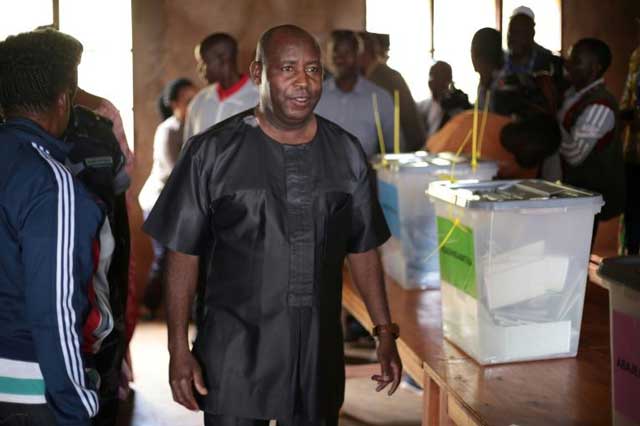
Nairobi, Kenya | AFP | The unexpected death of Burundian President Pierre Nkurunziza plunges the country into uncertainty, opening up the possibility of power struggles in the upper echelons of government.
Evariste Ndayishimiye, elected last month to replace Nkurunziza, is on the frontline as the country navigates its latest challenge.
– What does his death mean for the regime? –
In power since 2005, Nkurunziza’s ruling party bestowed upon him the titles of “visionary” and “supreme guide for patriotism”, symbolising his key role in the regime.
His death stunned the nation and left many anxious over its future, the latest dramatic event in a country whose history is littered with presidential assassinations, coups, ethnic massacres and a long civil war that ended in 2006 and left some 300,000 dead.
But Nkurunziza did not wield power alone. The ruling party’s innermost circle is made up of a group of powerful generals who like him emerged from the ethnic Hutu rebellion during the war.
“Some of them could perhaps take advantage of the vacuum to gain more power,” said Carina Tertsakian of the Burundi Human Rights Initiative.
“There will be people who have lost their boss. Others will perhaps see an opportunity to advance their pawns,” said Richard Moncrieff, an expert with the International Crisis Group (ICG).
– Where does this leave his successor? –
Nkurunziza’s decision not to seek a fourth term in office — after his insistence on a third plunged the country into turmoil in 2015 — shocked many.
He had wanted national assembly speaker Pascal Nyabenda to succeed him, but the generals opted for Ndayishimiye who won the May 20 election.
While he is also a general, Ndayishimiye is not a regime hardliner and Nkurunziza was expected to continue to play a significant role, possibly limiting the independence of his successor who is reputed to be more tolerant and open.
“In principle it is an opportunity for him to free himself, in the sense that we would have expected Nkurunziza to play an important role in the future,” said Moncrieff.
However Tertsakian said Ndayishimiye may still not have the “force or the power to stand up to” the generals, some of whom “have a lot of blood on their hands”.
If he wants to “introduce reforms, improve the human rights situation, end political violence… he risks hurtling into obstacles and reticence on the part of these generals,” she said.
– Is the constitutional transition in danger? –
The timing of Nkurunziza’s death, just days after the final election results were confirmed, is in some ways a blessing, said Tertsakian.
“If it had happened before the elections, it would have been real chaos,” she said.
But with Ndayishimiye already comfortably in the role of president-elect, with his inauguration due in August, the transition process should be smooth.
Constitutionally the speaker Nyabenda should take over in the event of the president’s death, but the government has yet to speak to how it will proceed: with an interim leader, or speeding up the timetable for Ndayishimiye’s swearing in.
The death of a president is usually a destabilising factor “but it is important to highlight that it is taking place in a context where the constitutional path is clear and not contested,” said Moncrieff.
However Tertsakian notes that internal divisions which are “pronounced” within the ruling CNDD-FDD party make the interim period “very uncertain”.
Much depends upon Ndayishimiye’s ability to keep a hold on the situation and “avoid either Nyabenda or other personalities trying to drift off the constitutional path”, said Moncrieff.
– What challenges await Ndayishimiye? –
After years of repression following the 2015 crisis in which Burundians were killed, tortured, imprisoned arbitrarily or disappeared, Nkurunziza leaves a “dark and sad legacy” in a country “gripped by fear”, said Tertsakian.
His death comes as 75 percent of the population are living in extreme poverty, compared to 65 percent in 2005, according to the World Bank.
While the first years of the Nkurunziza era were marked by progress in terms of development and reconciliation, the country’s leaders later isolated themselves both from the international community and their own population.
“They no longer listen to anything, they appear completely indifferent to the fate of the population. They have walled themselves up in a space of indifference,” Tertsakian said.
Tertsakian said she hopes Ndayishimiye manages “to set the country in a more positive direction” and introduce reforms, in the face of “considerable challenges” that await him.
 The Independent Uganda: You get the Truth we Pay the Price
The Independent Uganda: You get the Truth we Pay the Price



